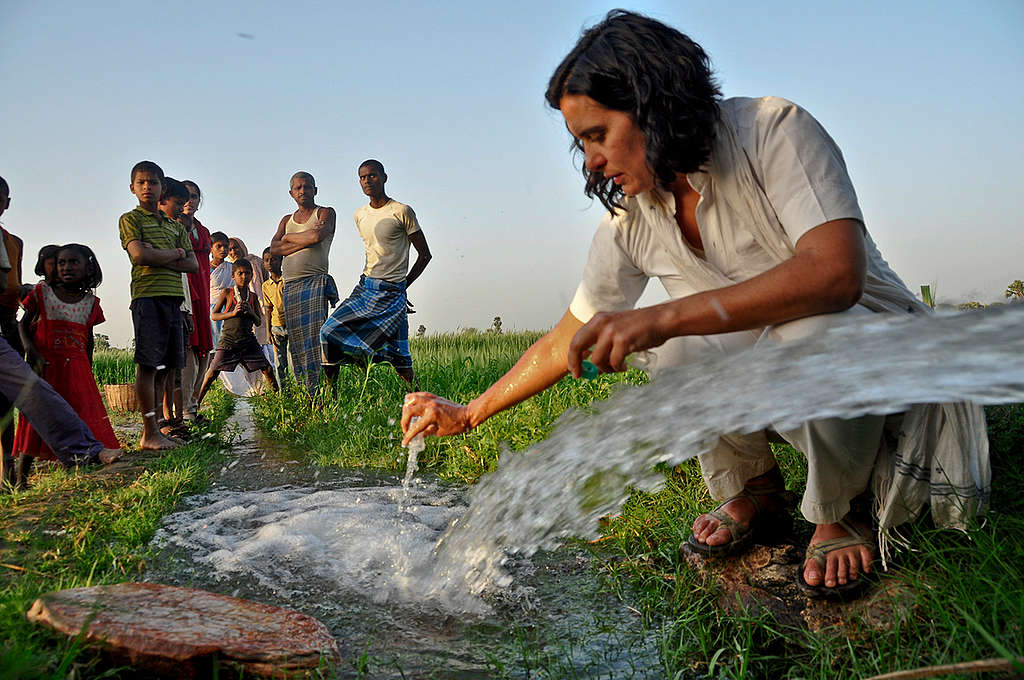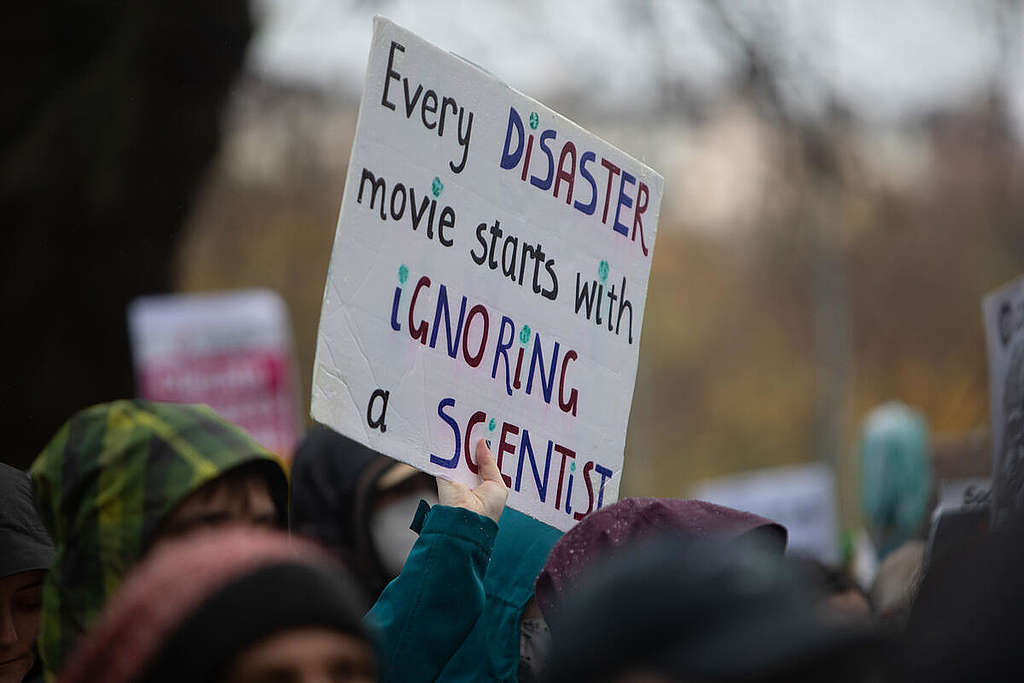Interview with Reyes Tirado, senior scientist and expert on agriculture and climate change with Greenpeace Research Laboratories, University of Exeter on what the new Working Group III report from the Intergovernmental Panel on Climate Change (IPCC) says about food and forests as climate solutions. Interview by Christine Gebeneter, Senior Communications Strategist with Greenpeace CEE.

What is the main message from the Working Group III IPCC report?
The most important message from the new report is that very powerful solutions to maintain a safe climate on Earth exist in all sectors. Implementing these solutions can halve global emissions by 2030, and set the course towards zero. There are encouraging numbers in this report. For example, more than half of the mitigation potential presented could be implemented in the next decade with no or low costs. Switching to wind and solar energy, stopping deforestation and shifting to plant-based diets, are examples of solutions with large potential to reduce emissions.
The dramatic picture on the other hand, shown by the report, is that sadly the current climate policies from governments are setting us up for failure. Now is the time to respond with clear policy actions and get us out of this downward spiral and instead turn the good news from this latest report into meaningful policies.
How urgent is it for us to get a hold on the climate and biodiversity crisis?
There are no words to describe urgency anymore. We should face the hard truth: now, the current moment, is the time to step up several gears. If we fail to drastically reduce emissions in the next decade, there are strong chances that our future might turn unlivable on the planet.
What are the biggest and easiest mitigation measures to implement against the climate and biodiversity collapse?
Stopping deforestation and protecting forests and other ecosystems, while respecting land rights of Indigenous Peoples and local communities, are significant options with clear big benefits for biodiversity. But to protect natural land, we also need to release pressure on the drivers that lead to deforestation and ecosystem destruction. Key to that is stopping the expansion of industrial livestock, which can be done effectively by shifting to diets low in meat and dairy, particularly in high-income societies.
In a nutshell: what are the top 3 solutions governments around the world must adopt right now to start saving our planet?
The top 3 would be: phase out fossil fuels; reduce energy consumption and shift to wind and solar energy, protect forests and natural ecosystems; and shift to plant-based diets grown with ecological farming. But key to all this is finance: money flows should shift from destructive subsidies and investments towards the real, equitable solutions, particularly in support of less developed and more vulnerable societies.
What can we, the people, do to become part of the solution?
First, collectively, we have to tell our politicians that the response to the climate and nature emergency, is the one issue that will shape our future. Mobilise, join demonstrations in support of youth movements, join local groups asking for urgent political action, stand up for nature protection, vote and keep contact with your decision makers also in between elections. Small collective acts can make a big difference.
And be the change you want to see in the world. If you can, switch to renewable energy utilities, choose the train instead of the plane, and go for a healthy diet low in meat and dairy, rich in plant-foods grown ecologically. Climate and nature crises won't be solved by individual acts alone. But through individual acts we set new norms. And we signal to politicians and business leaders: we take our responsibility and expect that you take yours on this existential threat we are all facing.
The IPCC also recognises that the more citizens and civil society engage on climate solutions, the more chances we have for strong political action. We have literally no time to lose.







